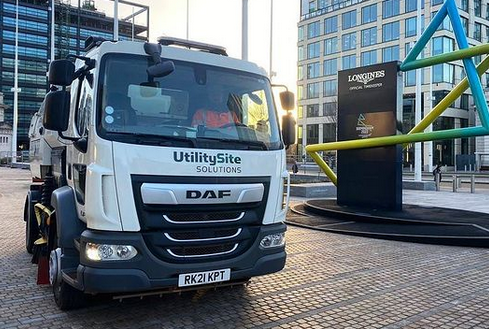Introduction
The world of excavation has undergone a significant transformation with the introduction of vacuum excavation trucks. These powerful vehicles combine cutting-edge technology with practical functionality, offering a safer, more efficient, and environmentally friendly alternative to traditional excavation methods. This article delves into the key features, applications, benefits, and future prospects of vacuum excavation trucks.
The Evolution of Excavation Technology
Excavation has long been a crucial process in construction, utility maintenance, and various other industries. Traditional methods, such as manual digging or mechanical excavation, come with inherent challenges like soil displacement, utility damage, and time-consuming processes. Vacuum excavation truck have emerged as a game-changing solution, providing a more precise and controlled approach to excavation.
Key Features of Vacuum Excavation Trucks
1. Powerful Vacuum Systems: At the heart of vacuum excavation trucks is a powerful vacuum system capable of efficiently extracting soil, debris, and other materials from the excavation site. These systems vary in capacity and suction power, allowing for versatility in different applications.
2. High-Pressure Water Jetting: Complementing the vacuum system, high-pressure water jetting is a fundamental feature of these trucks. This component assists in breaking up soil and debris, turning it into a slurry that can be easily suctioned into the tank.
3. Debris Storage Tanks: Vacuum excavation trucks are equipped with large debris storage tanks that can efficiently contain the extracted material. The size of these tanks varies based on the truck's specifications, allowing for extended operation without frequent disposal.
4. Boom and Hose Configurations: These trucks often come with extendable booms and flexible hoses, providing operators with the ability to reach challenging or remote excavation sites. This flexibility enhances the trucks' accessibility and adaptability to various work environments.
Applications Across Industries
Vacuum excavation trucks find applications across diverse industries, showcasing their versatility and adaptability to different job requirements.
1. Utility Installation and Maintenance: Vacuum excavation trucks are extensively used in utility projects for tasks such as exposing buried cables, pipes, or conduits. The precision of the vacuum system minimizes the risk of damaging existing utilities during excavation.
2. Construction Projects: In construction, these trucks excel in tasks like potholing, trenching, and excavation for foundations. The controlled and non-destructive nature of vacuum excavation is especially valuable when working in proximity to existing structures.
3. Environmental Cleanup: Vacuum excavation proves beneficial in environmental remediation efforts, where precise removal of contaminated soil is crucial. The ability to contain and transport the extracted material securely contributes to the efficiency of cleanup processes.
4. Municipal Maintenance: Municipalities utilize vacuum excavation trucks for maintenance tasks, including cleaning stormwater drains, removing debris from culverts, and addressing other infrastructure-related issues. The trucks' mobility and efficiency make them valuable assets in urban maintenance.
Benefits of Vacuum Excavation Trucks
The adoption of vacuum excavation trucks brings forth a myriad of benefits that contribute to their increasing popularity in various industries.
1. Enhanced Safety: One of the primary advantages of vacuum excavation is the increased safety it offers. The non-mechanical and non-destructive nature of the process significantly reduces the risk of utility strikes and injuries to personnel, making it a safer alternative.
2. Precision and Control: Vacuum excavation provides unparalleled precision and control during the digging process. Operators can precisely target the area of interest without disturbing the surrounding soil, structures, or utilities, minimizing the need for costly repairs or corrections.
3. Reduced Environmental Impact: Traditional excavation methods often result in soil displacement and disruption to the ecosystem. Vacuum excavation minimizes these environmental impacts by selectively removing only the necessary soil, leaving surrounding areas undisturbed.
4. Time and Cost Efficiency: The efficiency of vacuum excavation translates to time and cost savings. The controlled process reduces the need for extensive manual labor and minimizes downtime, leading to overall project cost reduction.
Challenges and Future Prospects
While vacuum excavation trucks offer significant advantages, challenges exist, particularly in terms of initial investment costs and the need for operator training. However, ongoing technological developments may address these challenges and pave the way for broader adoption.
The future of vacuum excavation trucks holds promise with potential advancements in automation, sensor technology, and data analytics. These developments may further enhance the trucks' precision, efficiency, and overall performance, making them even more indispensable in various industries.
Conclusion
In conclusion, vacuum excavation trucks have ushered in a new era in the field of excavation. Their powerful yet precise capabilities, coupled with a range of applications across industries, make them invaluable assets in construction, utility maintenance, and environmental remediation. As industries continue to prioritize safety, efficiency, and environmental sustainability, the road ahead for vacuum excavation trucks appears promising. The ongoing evolution of technology is likely to elevate these trucks to new heights, ensuring that they remain at the forefront of modern excavation practices.





Comments